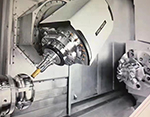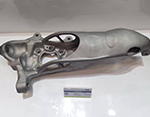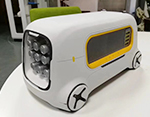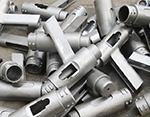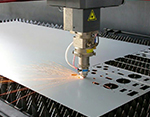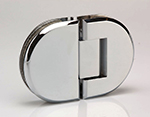-
Service
+
- CNC Precision Machining Service +
- Multi-Axis Simultaneous Machining Service +
- CNC Turning Service +
- Metal 3D Printing Service +
- Rapid Prototyping Service +
- Die Casting Service +
- Sheet Metal Fabrication Service +
-
Finish Serivces
+
- Polishing
- Grinding
- Brushed Finish
- Sand blasting
- Painting
- Powder Painting
- Anodizing
- Hard anodizing Service
- Passivation
- Zinc Plating
- Nickel Plating
- Chrome Plating
- Blackening
- Black Zinc Plating
- Teflon Coating
- Titanium Coating
- DLC Coating
- Laser Marking
- Silk Screen Printing
- Transfer Printing
- Micro Arc Oxidation
- Industries +
- About Us +
- Resource +
- Contact Us
- Quote

-
Service
-
>
-
>
-
>
-
>
-
>
-
>
-
>
-
>
-
- Industries
- About Us
- Resource
- Contact Us
Professional & High-level Aluminum CNC machining
With the rapid development of industries, the demand for aluminum continues to grow. There are more than 700,000 kinds of aluminum alloy products. Due to its good physical and mechanical properties, aluminum is widely used in construction, transportation, aerospace, electronics, medical equipment, automobiles, machinery, hardware and other fields.Aluminum is the most abundant metal element in the earth's crust, ranking second only to steel in metals. The density of aluminum alloy is low, but its strength is relatively high, which is close to or exceeds that of high-quality steel. It has good plasticity, can be processed into various profiles, and has excellent electrical conductivity, thermal conductivity and corrosion resistance. In addition to the application of some pure aluminum, in order to improve the strength or comprehensive performance, other elements can be added to form alloys. Adding an alloying element to aluminum can change its structure and properties, making it suitable for various processing materials or casting parts.
What is aluminum?
Aluminum is a malleable metal. Its element is a silver-white light metal. The content of aluminum in the earth's crust ranks third after oxygen and silicon, and is the most abundant metal element in the earth's crust. Its reserves rank second only to steel in metals. Aluminum is an active metal, which can form an oxide film to prevent metal corrosion in dry air, but aluminum powder can burn violently when heated in air, and emit a dazzling white flame. Aluminum is amphoteric, easily soluble in strong alkali and dilute acid, but hardly soluble in water. Aluminum exists mainly as aluminosilicate ores, but also as bauxite and cryolite. Alumina is a white amorphous powder with many variants, the most familiar of which are α-Al2O3 and β-Al2O3.The corundum that exists in nature belongs to α-Al2O3. Its hardness is only lower than that of diamond, and it has a high melting point and acid and alkali resistance. It is often used to make some bearings, abrasives, refractory materials, etc.
Due to the development of the three important industries of aviation, construction and automobile, the material properties are required to have the unique properties of aluminum and its alloys, which greatly facilitates the production and application of this new metal aluminum. Aluminum is widely used in construction, transportation, aerospace, industry, electronics, medical equipment, automobiles, machinery, hardware and other fields due to its lightness, good electrical and thermal conductivity, high reflectivity and oxidation resistance.
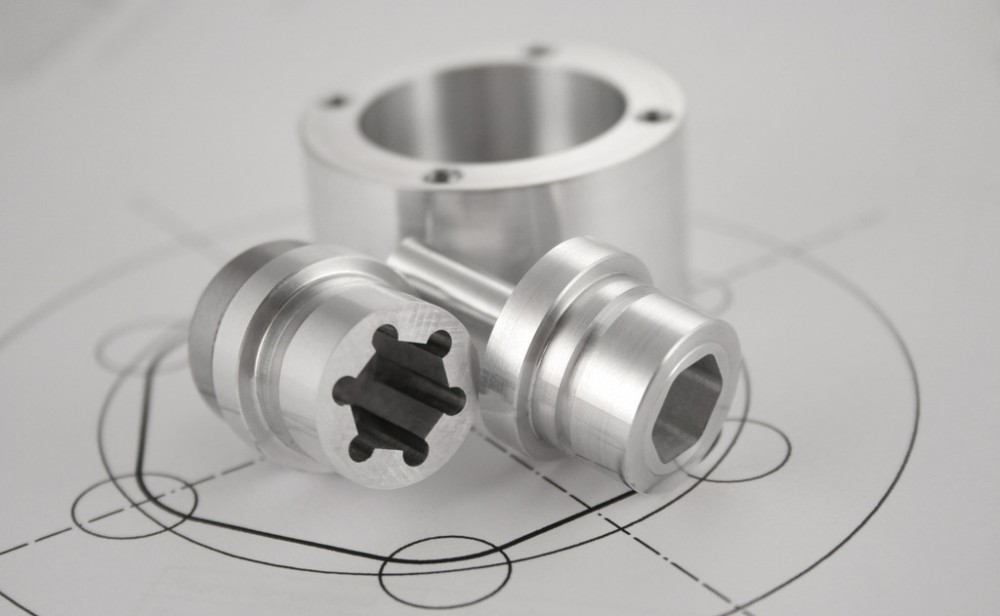
Aluminum
What is the classification of aluminum and aluminum alloy?
Aluminum is a metal with low strength and good plasticity. In addition to the application of some pure aluminum, in order to improve the strength or comprehensive performance, it is made into an alloy. Adding an alloying element to aluminum can change its structure and performance, making it suitable for various processing materials or casting parts. Alloying elements that are often added are copper, magnesium, zinc, and silicon. Aluminum alloys are mainly divided into deformed aluminum alloys and cast aluminum alloys.
1) Deformed aluminum alloy. Aluminum alloys with high strength, high specific strength and suitable for plastic forming are called deformed aluminum alloys. Deformed aluminum alloys are further divided into: industrial pure aluminum, aluminum alloys that cannot be strengthened by heat treatment, and aluminum alloys that can be strengthened by heat treatment.
2) Cast aluminum alloy. Aluminum alloys that are suitable for filling molds in a molten state to obtain casting blanks of a certain shape and size are called cast aluminum alloys. Cast aluminum alloys are divided into: aluminum-silicon alloys, aluminum-copper alloys, aluminum-magnesium alloys, and aluminum-zinc alloys.
What are the common aluminum alloy materials?
1) 1060: 1060 belongs to ordinary industrial pure aluminum, and the aluminum content is not less than 99.60%. It is characterized by low strength, and work hardening is the only way to strengthen it. It has good thermal processing and cold processing properties, high thermal conductivity, and excellent corrosion resistance. It is widely used in industrial equipment that requires good formability, corrosion resistance, and weldability. It can also be used as an electrical conductor material.
2) 2024: The composition and structure of the 2024 alloy are the same as those of the 2A12 alloy, and the limited content of impurities Fe and Si in the 2124 alloy is lower. 2024 alloy sheets, thick plates and profiles have been successfully used to manufacture skins, cabins, integral fuel tank panels, wing beams, etc. of aircraft and rockets.
3) 5052: The magnesium content of the 5052 alloy is 2.5%, which is the one with the lowest magnesium content in the aluminum-magnesium antirust aluminum. It is widely used in the manufacture of fuel and fuel pipes and fuel tanks for aircraft, parts in various ships and transportation vehicles, sheet metal products, instruments, street lamp brackets, rivets and wires, etc
4) 6061: 6061 alloy is an Al-Mg-Si series heat-treatable and strengthened aluminum alloy, which can be processed into plates, tubes, rods, shapes, wires and forgings. It is widely used in building profiles, large structural parts that require good corrosion resistance, trucks, ships, railway vehicle structural parts, conduits, households, etc.
5) 6063: 6063 alloy is an Al-Mg-Si series heat-treatable and strengthened aluminum alloy, which can be extruded into rods, profiles, and pipes. It is widely used in building structural materials and decorative materials, such as door frames, window frames, wall panels, containers, furniture, elevators, and decorative components of different colors in aircraft, ships, light industry departments, buildings, etc.
6) 7075: 7075 alloy is Al-Zn-Mg-Cu super duralumin, which is characterized by good plasticity after solution treatment and obvious heat treatment strengthening. It can be processed into plates, pipes, profiles, bars and forgings. It is mainly used for aircraft structural parts and other high-strength corrosion-resistant structural parts.
Aluminum CNC Machining:
Aluminum alloy processing methods mainly include: CNC machining, stamping, casting, powder metallurgy processing, and injection molding. Designers and engineers often choose aluminum and aluminum alloys for CNC machining. Compared with traditional processing technology, CNC machining has the characteristics of high precision, uniform structure, excellent performance and low production cost. There are also many ways of surface treatment of aluminum. Including sandblasting, polishing, brushing, high gloss cutting, anodizing.
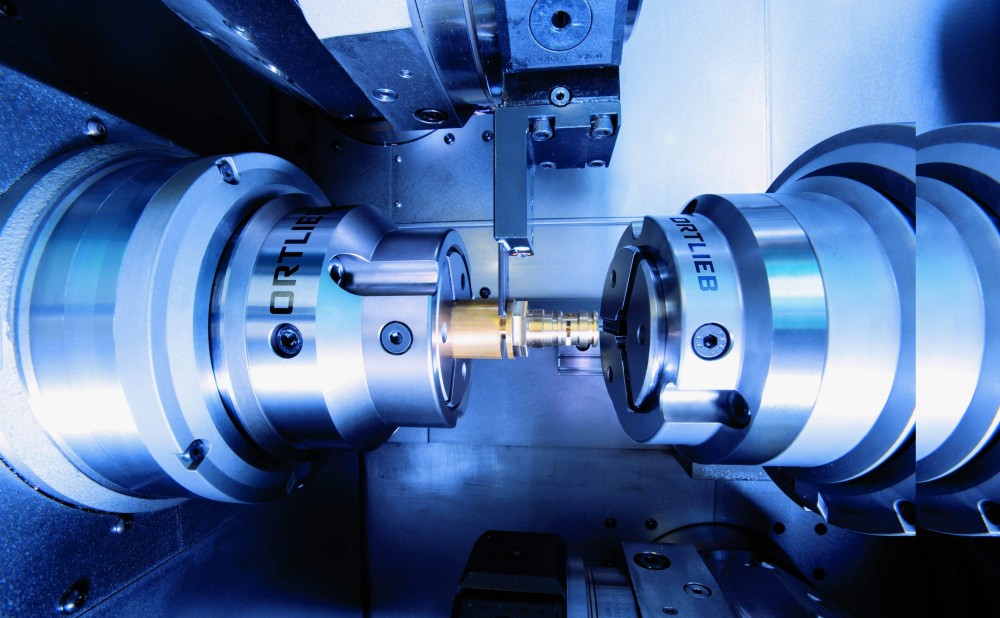
Aluminum CNC Machining
The advantages of Aluminum CNC Machining:
1) Low density. The density of aluminum is about 2.7g/cm3, which is only 1/3 of that of iron or copper.
2) High plasticity. Aluminum has good ductility, and can be made into various products through extrusion, stretching and other pressure processing methods.
3) Corrosion resistance. Aluminum is a very electronegative metal. Under natural conditions or anodic oxidation, a protective oxide film will be formed on the surface, which has much better corrosion resistance than steel.
4) Easy to strengthen. The strength of pure aluminum is not high, but its strength can be improved by anodizing.
5) Easy surface treatment. Surface treatment can further enhance or change the surface properties of aluminum. The aluminum anodizing process is quite mature and the operation is stable, and it has been widely used in the processing of aluminum products.
6) Good electrical conductivity, easy to recycle.
The aplications of Aluminum CNC machining:
As stated earlier, aluminium alloys have a number of desirable properties. Hence, CNC machined aluminium parts are indispensable in several industries, including the following:
1)Aerospace: due to its high strength to weight ratio, several aircraft fittings are made from machined aluminium.
2)Automotive: similar to the aerospace industry, several parts such as shafts and other components in the automotive industry are made from aluminium.
3)Electrical: having high electrical conductivities, CNC machined aluminium parts are often used as electronic components in electrical appliances.
4)Food/Pharmaceutical: because they do not react with most organic substances, aluminium parts play important roles in the food and pharmaceutical industries.
5)Sports: aluminium is often used to make sports equipment such as baseball bats and sport whistles.
6)Cryogenics: aluminium's ability to retain its mechanical properties at sub-zero temperatures, makes aluminium parts desirable for cryogenic applications.
>> Operation Process
1. Contact us with the drawings of your products.
Files formats are accepted when clients send us drawing.
3D: Pro/E, UG
2D: Auto CAD
Accepted file format: .igs, .prt, .stp, .x_t, .dxf, .dwg, .pdf, .jpg, .tif, .bmp, .doc, .xls.
2. Receive our offer. We will send you the quotation sheet as soon as possible.
3. Place the orders.
4. Make payments.
5. Engineers write programs for products.
6. Production.
Machining types: CNC milling, CNC turning, grinding, stamping, bending, welding, die casting, drilling, tapping and injection molding.
CNC machining range:
* Aluminum: 6061, 6063, 6061-T6, 7075, 5052, 2017, 6083.
* Steel: Q215,Q235,10# 15#, 45#, S136, SKD11,718H.
* Copper / brass / bronze.
* Titanium / TC4.
* Plastic: Delrin (POM), Teflon, Nylon, PA, PC, PMMA, Ultem (PEI), PTFE.
* Stainless steel: 303, 304, 316, 430, 420.
Surface treatment: laser engraving LOGO, Anodizing, Sandblasting, Plating chrome, Plating nickel, RoHS zin, Assembly, Welding, Heat treating, and so on.
7. QC checks the quality of machinery machining parts.
8. Packing.
9. Delivery.
>> Equipment
CNC milling machines, CNC turning machines
>> Tolerance
Tolerance for the precision machined aluminum parts: ±0.01mm.
>> Our characteristics
1. Our service is from the provision of technical advice, our engineers will take into account all your requirements to choose the best materials and production processes;
2. We have ample material suppliers to meet the supply of bulk or proofing materials;
3. Our engineers will choose the right tool according to the different nature of the material processing;
4. For easy deformation of the material (nylon, copper, etc.) will have a special process processing;
5. Strict quality management, to ensure the provision of high-quality products
For more information and consultation, contact us here!
E-mail: Erin@kesugroup.com
WhatsApp: +86 132 4065 0719

